Being the kind of guy that my government would denounce as a lefty liberal wuss I would normally praise with great fanfare a country that had managed to produce, not only a female prime minister but a leader of the opposition as well and particularly so when it’s a Muslim country. But, alas in this case, the two ladies have decided to take on all the characteristics that male leaders the world over have excelled in to ensure that they and their mates have their snouts firmly in the trough, whilst the humble citizen is left with a meagre diet of political platitudes and an extra portion of bull shit. Prime minister Sheikh Hasina oversees a regime of corrupt, violent repression, as former prime minister Khaleda Zia waits eagerly in the wings to take her turn running the country to her own advantage. Each are daughters of political families trading on past glories.
If there is one thing to be said in their defence it is that Bangladesh didn’t exactly get off to the best of starts through no fault of their own and even the best of leaders would have struggled to create a decent democracy by now. The first people to blame is whoever the twits were in the British government at the time of the partition of India, who thought it would be a good idea to back the Muslim elite’s plan to make this land East Pakistan, with the glaring inconvenience of having 2000km of India between it and the rest of Pakistan. They may have shared a majority Muslim population and some general south Asian characteristics but that was about it and they most certainly didn’t share a language. Consequently, when Pakistan decreed that the Bengali speaking eastern half had to speak Urdu instead, the Bengali response was, “piss off”! This set the tone for years of turmoil which culminated in 1970 with the Pakistan army deciding to calm things down with a spot of mass killings, rape and looting, which hardly endeared them to the Bengalis and led, with the help of India’s somewhat larger army to full independence in 1971. ( A more detailed explanation of this whole process can be found here – The Birth of Bangladesh )
The fall out from the war of independence is still with us today and is a blight on internal politics. Most recently because Hasina and her Awami League (AL) party have pretty much declared an all out war on the opposition, as Zia’s Bangladesh Nationalist Party (BNP) in coalition with the smaller, Islamist party Jamaat-e-Islami had become a threat to continued AL rule. Leaders of the Islamists have been prosecuted for war crimes from the time of independence, despite the fact that at the time reconciliation was seen as more important for the country to recover and it is only recently that Hasina decide to exploit this to damage the coalition. Although it is quite possible that some of these people did some horrid things during the war, international observers were hugely critical of the trials, which usually led to the death sentence after massive violent protests both for and against execution. Before things could calm down the AL decided to ignore constitutional procedure of handing over to a neutral, interim government for the elections, which understandably got the opposition a bit miffed and they boycotted the proceedings. Regarding protests as an unnecessary fuss the AL banned them and got their chums in the police to shoot people who thought this was a bit unfair. Without the outlet of traditional demos, which could still be rather nasty anyway, things turned really nasty.
If you need to learn one word to understand Bangladesh politics it is hartal. This is a form of general strike tactic which is often brought into play when politics reach crisis point and seeks to shut down public and goods transport, causing much of the economy to grind to a halt. To enforce the hartal, opposition elements thought that it would be a lovely idea to firebomb innocent bus loads of citizens which didn’t do a lot for their popularity with people, particularly as Zia did nothing to distance herself from the attacks, so AL supporters in disguise, ably backed by the police, who accidentally looked in the wrong direction, also chose the molotov option in order to discredit the opposition even further. Such action is typical of the police and security forces, who clearly act as an arm of the government at times, are riddled with corruption and even protested when the government brought in a law forbidding torture, so wedded are they to this form of entertainment. When police do arrest people for more legitimate reasons they are quite happy rounding up a whole load of innocents who happen to be in the wrong place so that they can demand money for their release, just another of the many reasons that destroy people’s faith in the system. Particularly notorious for brutal tactics are the Rapid Action Battalion but given that they have been trained by the UK this comes as little surprise as the British government has a long and noble history of training and arming vicious extremists regardless of state, religion or ideology when it suits the nations geo-political motives and a healthy profit from juicy military contracts is involved.
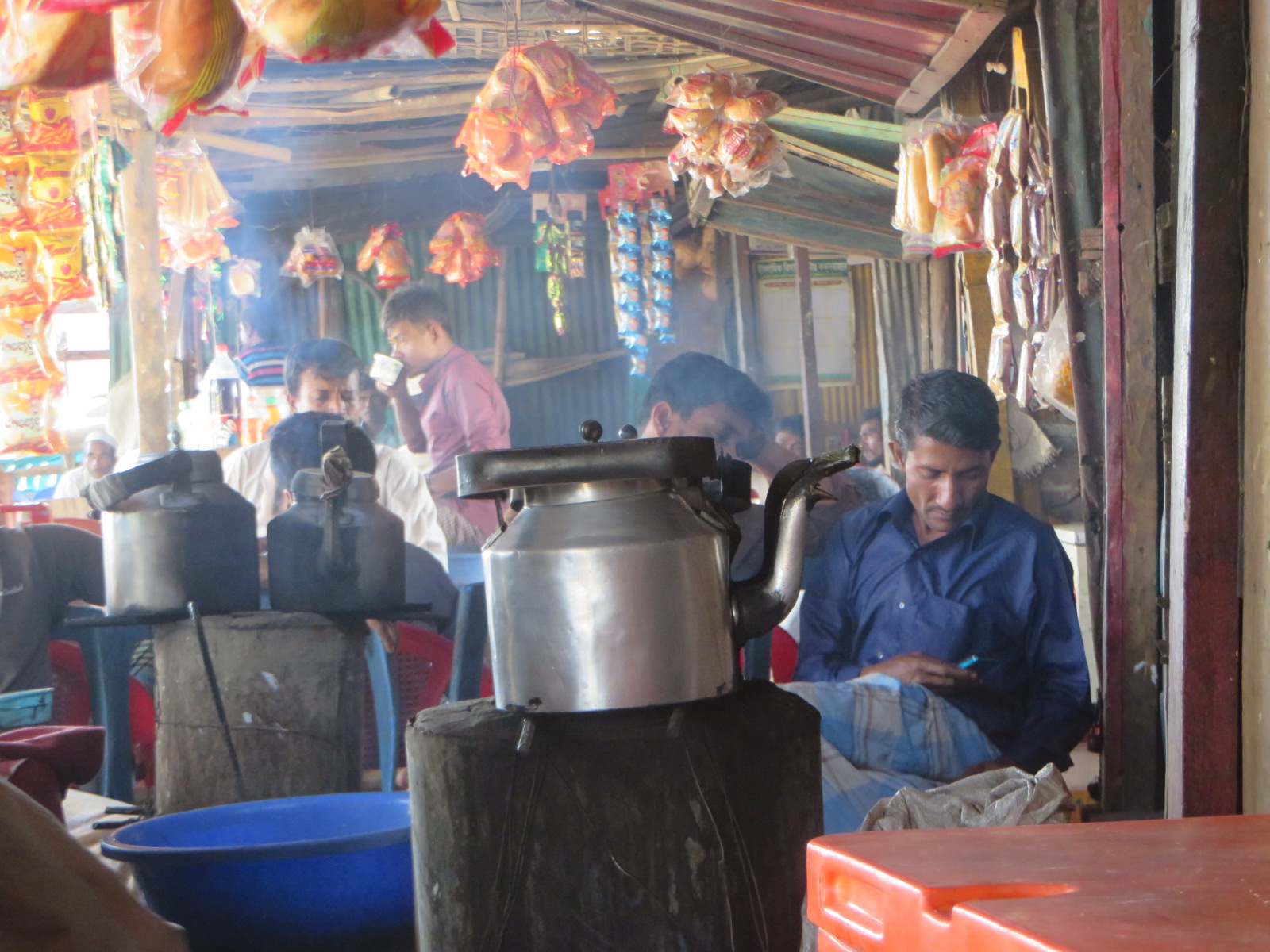
A nice cup of tea is an essential part of the day, especially if you have to look forward to getting clubbed by the police
Most days during my six weeks in the country brought news of more deaths and political posters spared no detail with photos of charred corpses and burns victims before the hartal came to an end. Incidentally if you do decide to visit during a hartal you can minimise your chances of premature cremation by only travelling on weekends, when it is not enforced and using private bus companies, which are less likely to be targeted and remember that statistically you are more likely to be killed by the appalling driving standards anyway, rather than being incinerated to death. In the event you are foolish enough to consider hiring a self drive car during your stay you will be glad to hear that the rules of the road can be learnt very quickly, it’s quite simple: there aren’t any. Why other countries think that there should only be one direction of traffic on a roundabout is a total mystery to Bangladeshi road users. Of course police invent rules on an ad hoc basis to supplement their wages with fines, though bargaining is not out of the question if you are a bit hard up for cash.
In her efforts to destroy the opposition Hasina has got her friends in the security services to disappear politicians she takes a particular dislike to, some have never been seen again and others have eventually turned up in odd places such as Indian asylums. Hundreds of activists have been killed and in recent mayoral elections AL thugs attacked voting centres to stuff ballot boxes and whatever else was necessary to ensure the election went their way. Needless to say the media are kept in their place, as dissenting journalists have discovered to their cost.
Despite being a conservative Muslim country the political system is secular and the Islamist party, Jamaat e Islami, only get a handful of mp’s even though their record on corruption is far better than the other parties, but like them they have members who are not averse to violence. Part of the limit on their popularity is their unforgivable siding with Pakistan during the war for independence. Although politically motivated violence is hardly a surprise given the government’s actions there are a small number of religious extremists who have taken to hacking atheist bloggers to death recently. Condemnation was not as strident as it could have been given the complicated interplay between religion and politics. The ruling AL has for example introduced a law on the defamation of religion as demanded by many Islamists but equally has been happy to gun hundreds of them down mercilessly, as in the 2013 Motijheel massacre. Islamists have attacked and killed non-Muslims, particularly Hindus as they are seen as agents of India, a traditional enemy and persecutor of Muslims in their eyes. Although there is little sympathy for this kind of extremism and terrorism it is the government violence and resultant instability in the country which risks giving it a foothold that would otherwise not be there. Many times people told me how well they get on with non-Muslims and that they regard Bangladesh as religiously tolerant.
It’s worth noting that the UK/US media has given prominence to the religiously motivated killings of the bloggers and quite rightly condemned them but has a lot less to say about the regular extra-judicial killings carried out by the avowedly secular state. Whereas for Muslims in our own countries the few acts of extremists are used by parts of the media to paint a broad impression of all Muslims, the Bangladesh government has little problem in lumping opponents in with extremists when it wants to clamp down on them, as they did with the Motijheel massacre and its cover up in the media.
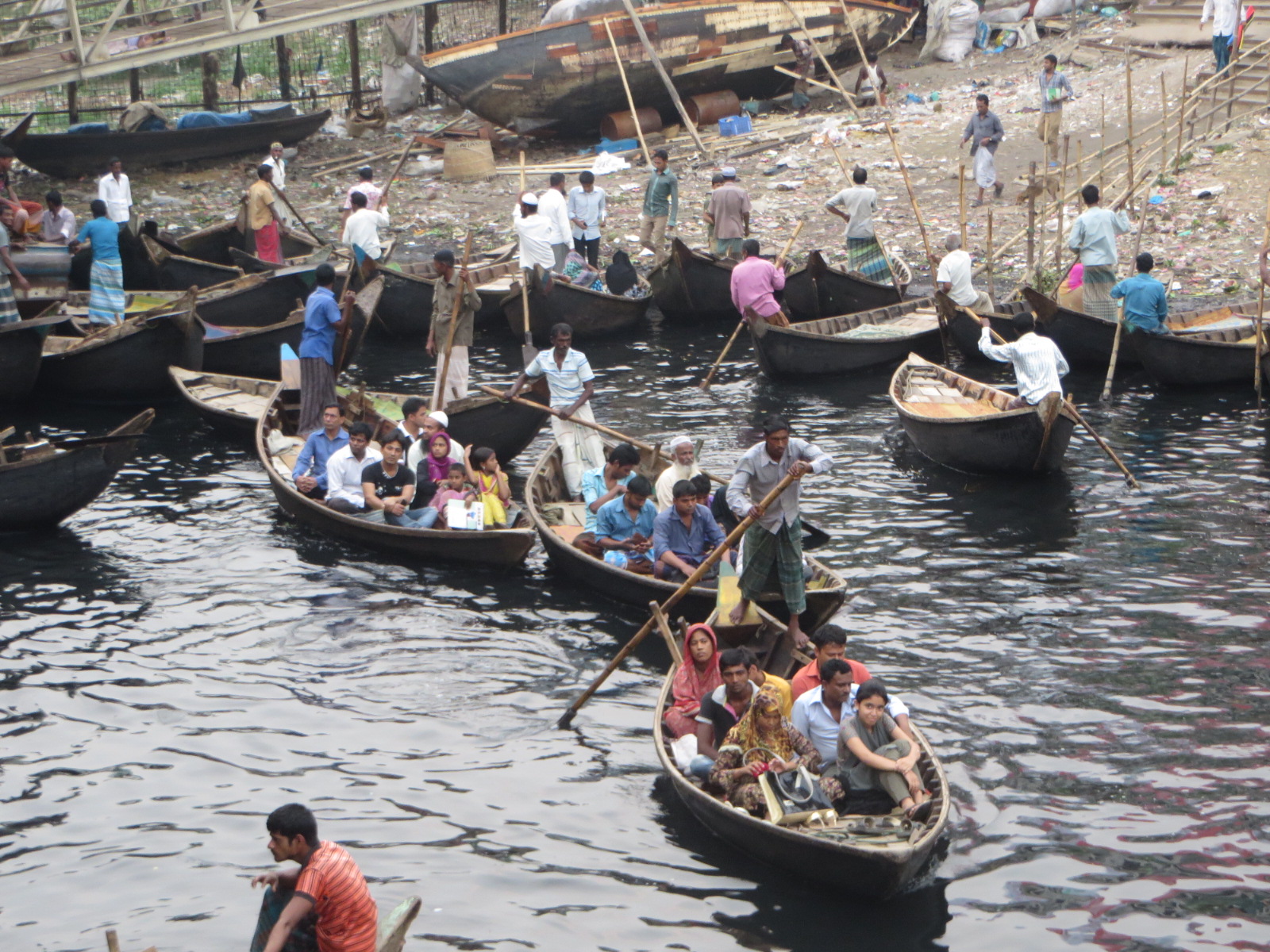
The rubbish strewn river banks of Dhaka and black water indicate that some work remains with the environment.
Politicians are rarely near the top of the list of most loved professions in any country but I have heard less vitriol directed against mass murdering dictators than I have for the nation’s politicians, regardless of the political persuasion. People quite rightly blame the lot of them as self-serving, corrupt scumbags who are responsible for the woeful state of the nation. The only two people I met who had anything positive to say were party members, one of the AL and one of the BNP and both had no hesitation in admitting that their parties were riddled with corruption.
Taking a look at just one train journey gives you a bit of insight into how things work. Sylhet in the north to Chittagong in the south is one of the major rail routes in the country but it was no surprise that our scheduled train arrived over an hour late: travelling at full speed is inadvisable as someone may have decided to remove some tracks, either as part of the hartal protests or for making a donation to a scrap yard. Many people avoid the inconvenience of buying tickets by handing over a fraction of the usual cost to the conductor and by pre-arrangement with the driver the train will slow to a crawl before a destination so people can jump off and take a route which avoids the ticket barrier checks. Waits at some stations were extended so fuel could be siphoned off and sold or unregistered goods could be loaded onto the roof to provide additional income. Naturally officials along the way are happy to receive some grubby cash to facilitate the process by taking a tea break at the appropriate time. When you extrapolate this system to cover everything that goes on in the country it’s no surprise that things are a mess and the majority have little or no chance to realise their potential, unless they too submit to corruption.
The huge numbers of children you see working is an indication of the hardship of everyday life but that is not to say that your typical parent doesn’t appreciate the value of education, simply that it is a luxury many cannot afford. I met plenty of extremely poor children and their parents who spoke proudly of passing exams and aims for the future, parents only know too well that without an education their children stand no hope of leading better lives than their own. Even though this may offer little guarantee it is an investment they see as one worth making. It is easy to think of child labour simply as brutal exploitation but this is simply the worse end of a very broad spectrum. Rural kids work in the fields at important times of harvest but this could just be a matter of a few days before they are back in school; many are simply learning the family trade; many serve tea and clear tables at restaurants which may in time lead to a better job. Some children working in simple cafes or shops were as charming, lively and friendly kids as you could ever wish to meet, their eagerness to practice English proof that school was not just an idle dream, their experience of dealing with the public also having given them a confidence when interacting with strangers that better educated kids often lacked. On a different part of the work spectrum I spoke to an orphan who collected fares from passengers in the back of a converted pick up truck: for the princely sum of $3.50 a day and a bed to sleep in he worked from 6am to midnight six days a week. Few would envy a life like that but you only have to see the dirt smothered children in rags lying on rubbish strewn pavements to know that there are plenty who would jump at the chance of such employment and a bed away from the fears of the street. On this evidence you could hardly accuse Bangladeshis of being work shy but they also demonstrate a resourcefulness from an early age that the luxuries of the West fail to promote. Before a train has come to a halt at a main station a posse of kids will have charged through the carriages grabbing anything recyclable left by the public – economic necessity rather than lectures on the environment is the most effective tool in the re-use of materials.
With a country run by a women you would have hoped for a better batch of statistics for women’s quality of life but with the highest incidence of under 15 marriage in the world and 60% of women reporting abuse this is evidently not the case. A law against domestic violence was introduced but women’s lives are marred by the poverty and corruption affecting all (both are drivers of underage marriage and abuse), as well as the pressure to conform to traditional roles and the patriarchal attitudes of many men.
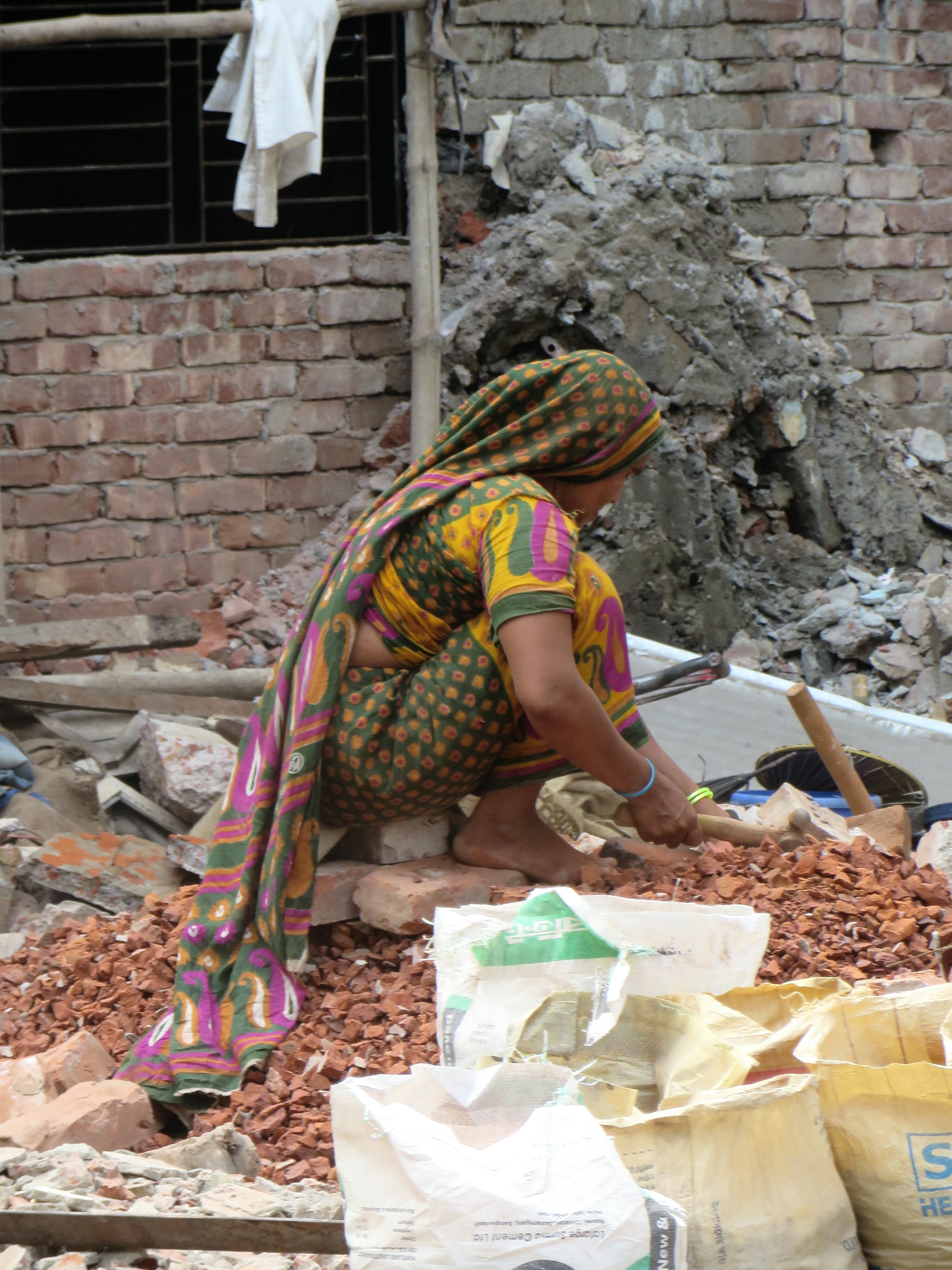
Women breaking bricks to make ballast for concrete is a common sight due to the lack of suitable stone deposits in the country
Although foreign aid has had real impact in areas such as girl’s education and child mortality as part of the Millennium Development Goals, it is inspiring efforts from within the country that demonstrate that the people themselves are capable of transforming the country, if only they had political system that worked for them. The Gramene micro finance system was born in Bangladesh and spread well beyond its borders supporting small-scale entrepreneurs, while BRAC has grown from a village project in 1972 to the world’s biggest development organisation. The Islamic obligation of Zakat, requiring Muslims to give to charity, is taken seriously by many of the more wealthy people. Take one of my generous hosts, Ahsan: as a farmer and business man he has funded the operation of a clinic for local villagers; supports a school and provides his expertise to a cooperative of small businesses such as shops and a restaurant. He and others like him do not lead lives utterly divorced from the realities of everyday existence, particularly in rural communities where you will see the mansions of the wealthy side by side with the shacks of the poor and where large interconnected families tend to promote a diffusion of wealth. Families who have gained their wealth abroad who may spend much time out of the country never totally sever their ties with home and often invest back home. Near Sylhet a whole cancer hospital has been funded by such families, such is the seriousness that some of the rich have of their duty towards Zakat and their home communities.
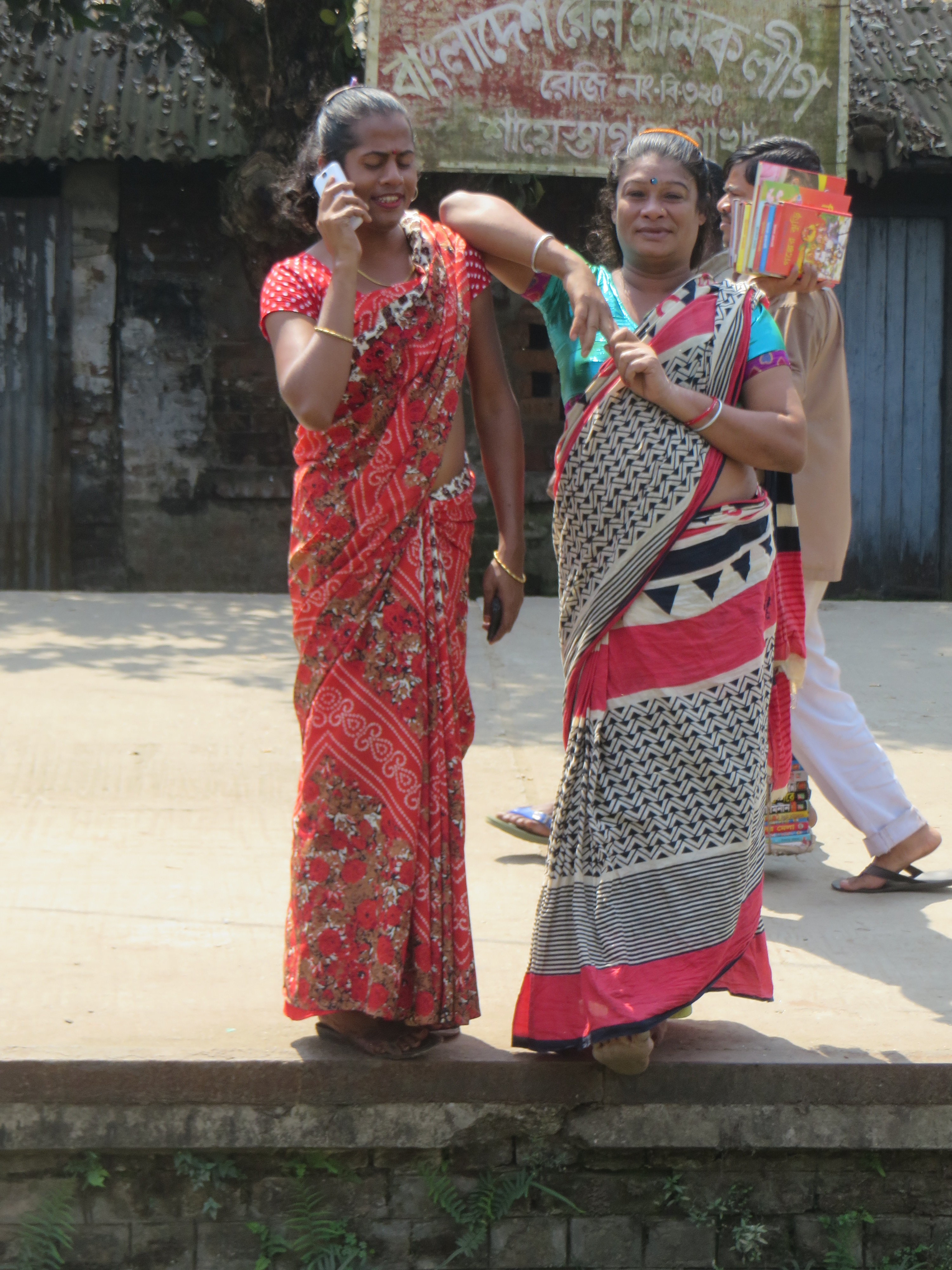
Although marginalised by their sexuality Hijra have vital roles to play in some ceremonies but many resort to begging or prostitution. A third sex is recognised in Bangladesh law but does little to protect them from discrimination.
A simple way to spread around what wealth there is by using employment practice. Hotels and restaurants never seem to be driven by the obsessive profit motive found in the West that strim staff numbers down to a bare minimum at the expense of service. You are more likely to have a choice of staff to call upon rather than wondering where the waiter has got to; lifts are usually manned by a friendly button pusher and all kinds of employees can be found wandering the corridors of your hotel. These economically inefficient posts mean that many people have at least a modest job to help them support their family.
Although by reading this you may have been deterred from visiting the country, just remember that none of the violence is directed against tourists and the police will do their utmost to stop you going anywhere they are shooting people. As in any country avoiding public demonstrations is sensible advice but I wouldn’t blame you if you didn’t fancy visiting during a hartal. Despite the undoubted chaos it is impossible to leave the country without making new friends and learning the true meaning of hospitality. It is the vast majority of the population that give me the faith that in time they will overcome the limitations of their despicable governments that neither represent or genuinely care for its people.




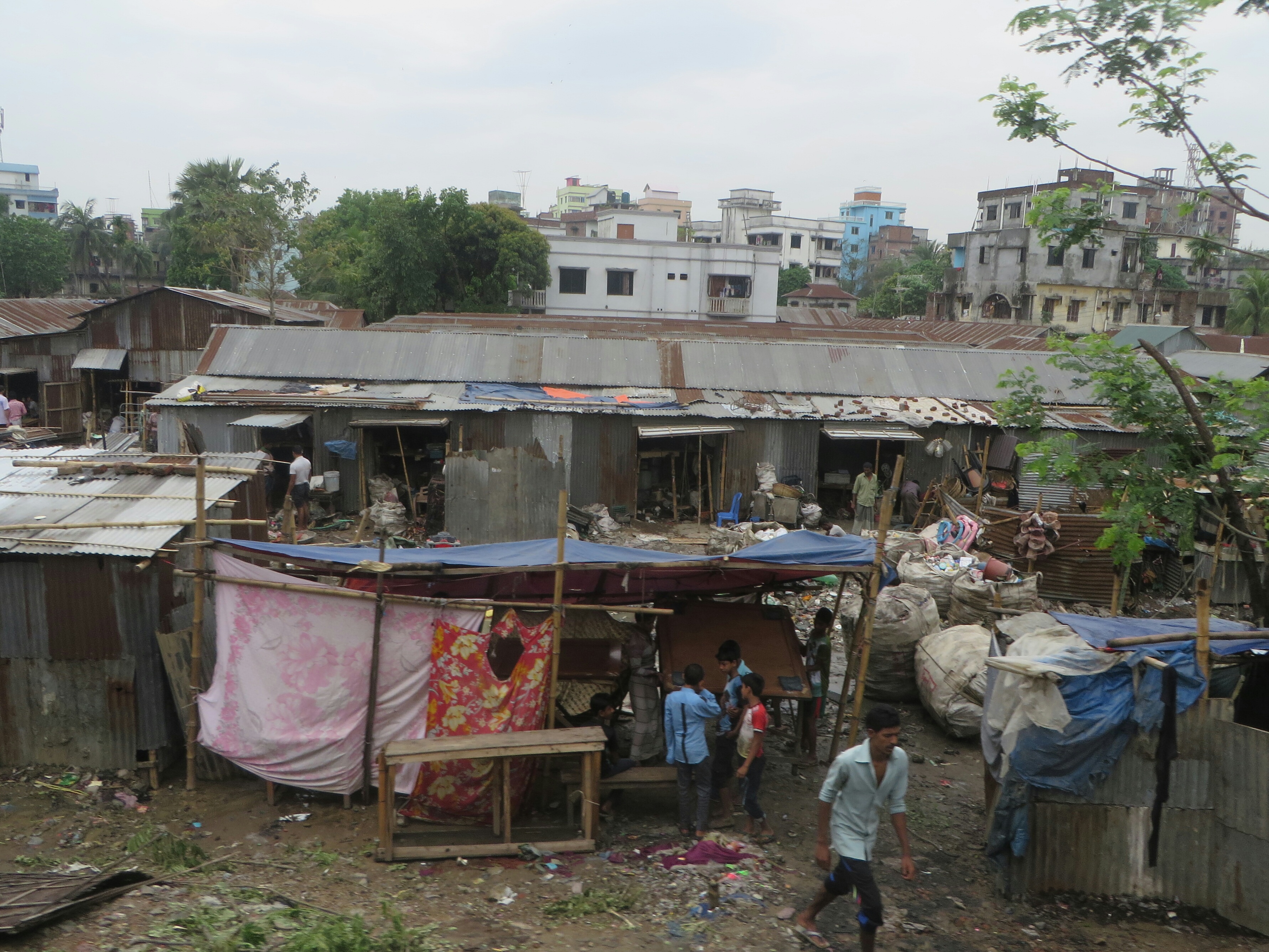
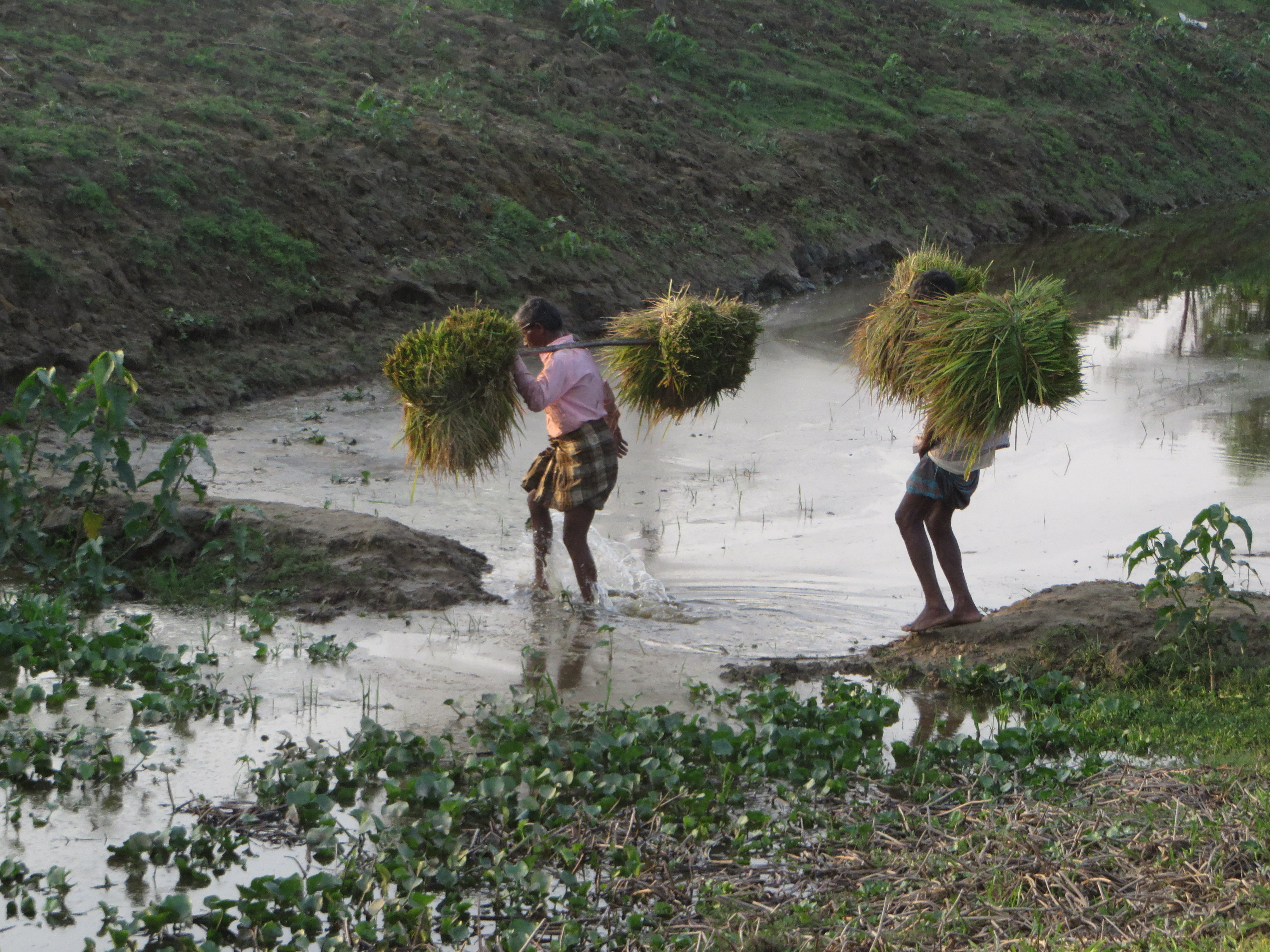
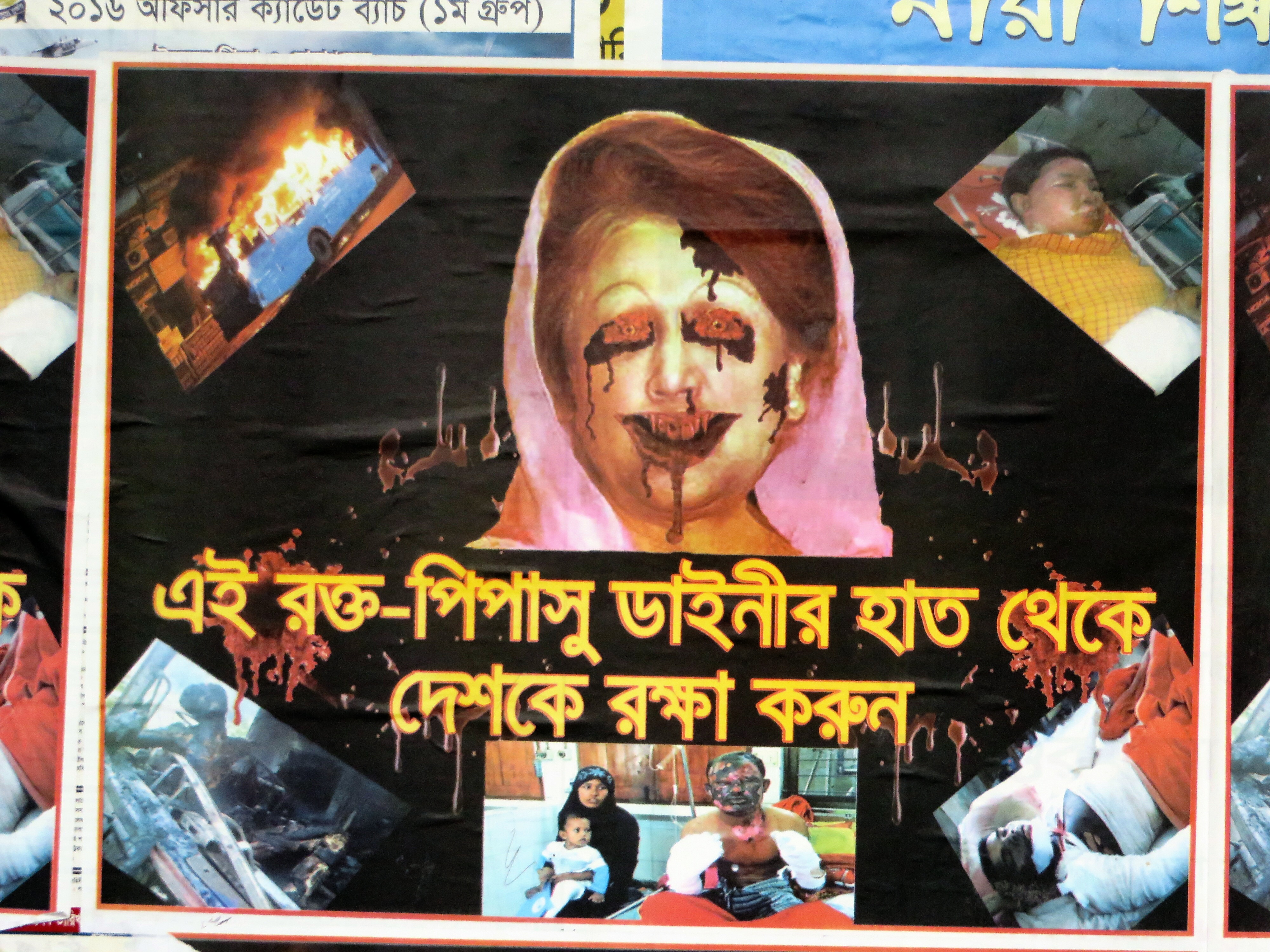
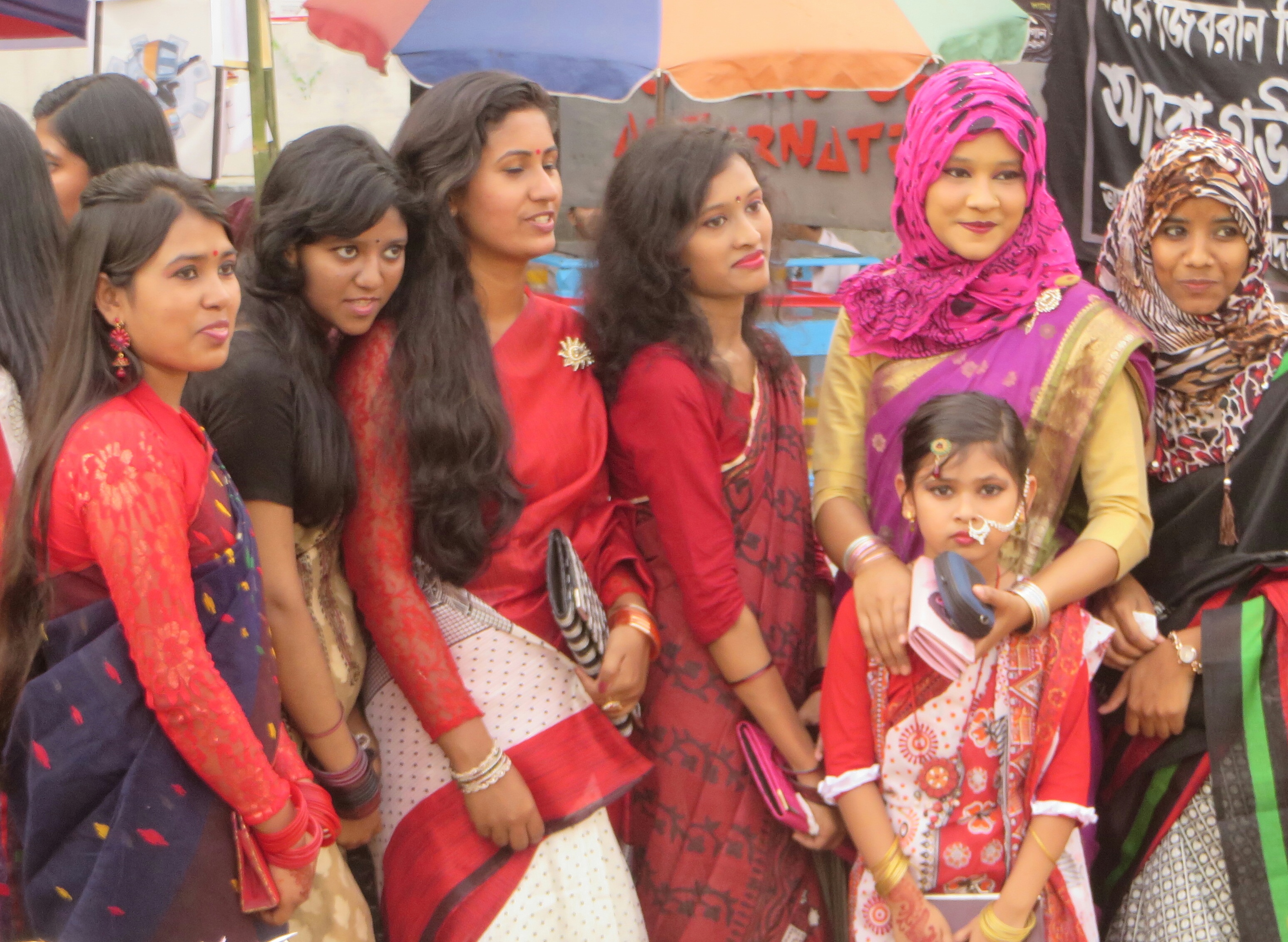
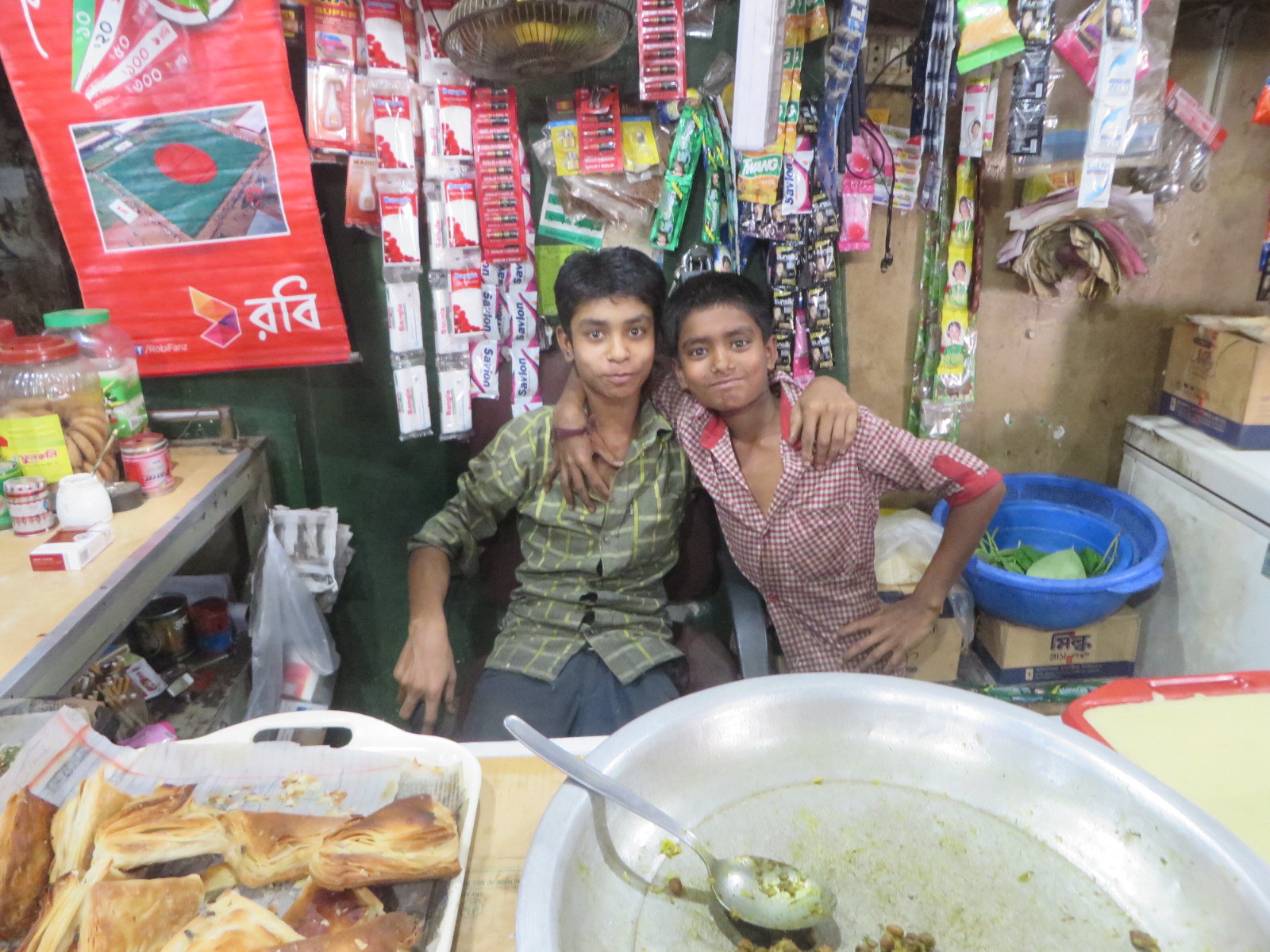
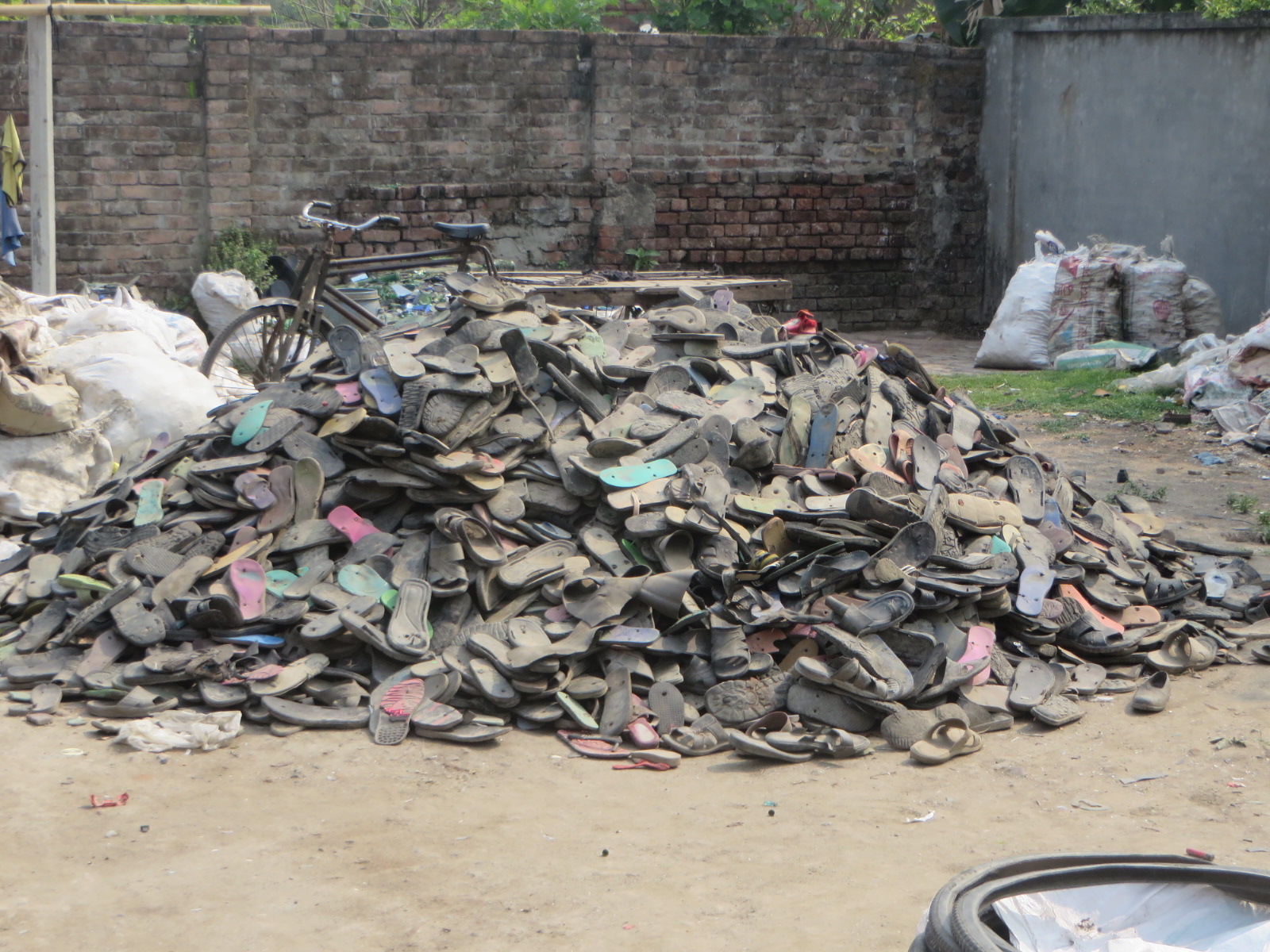
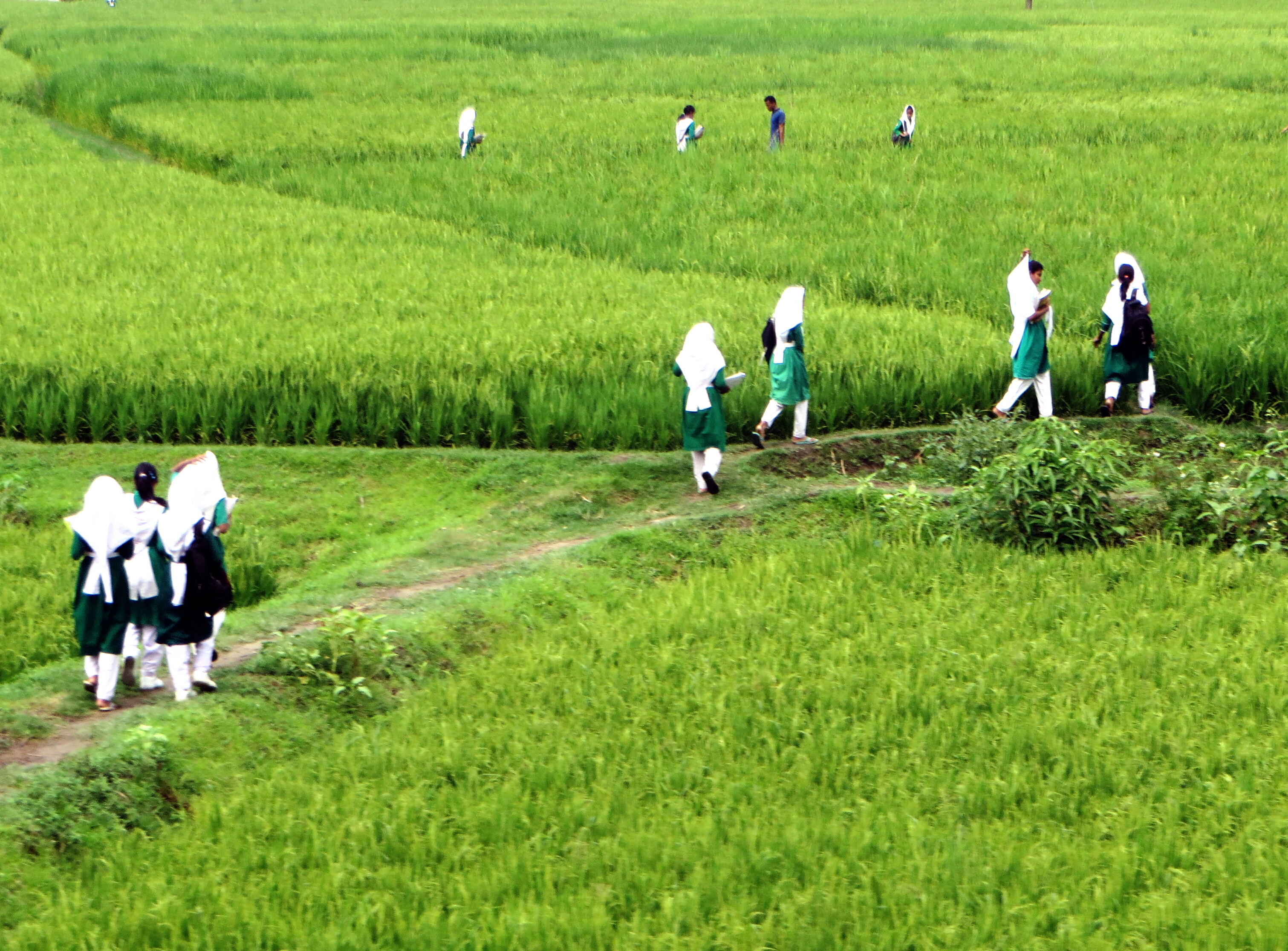
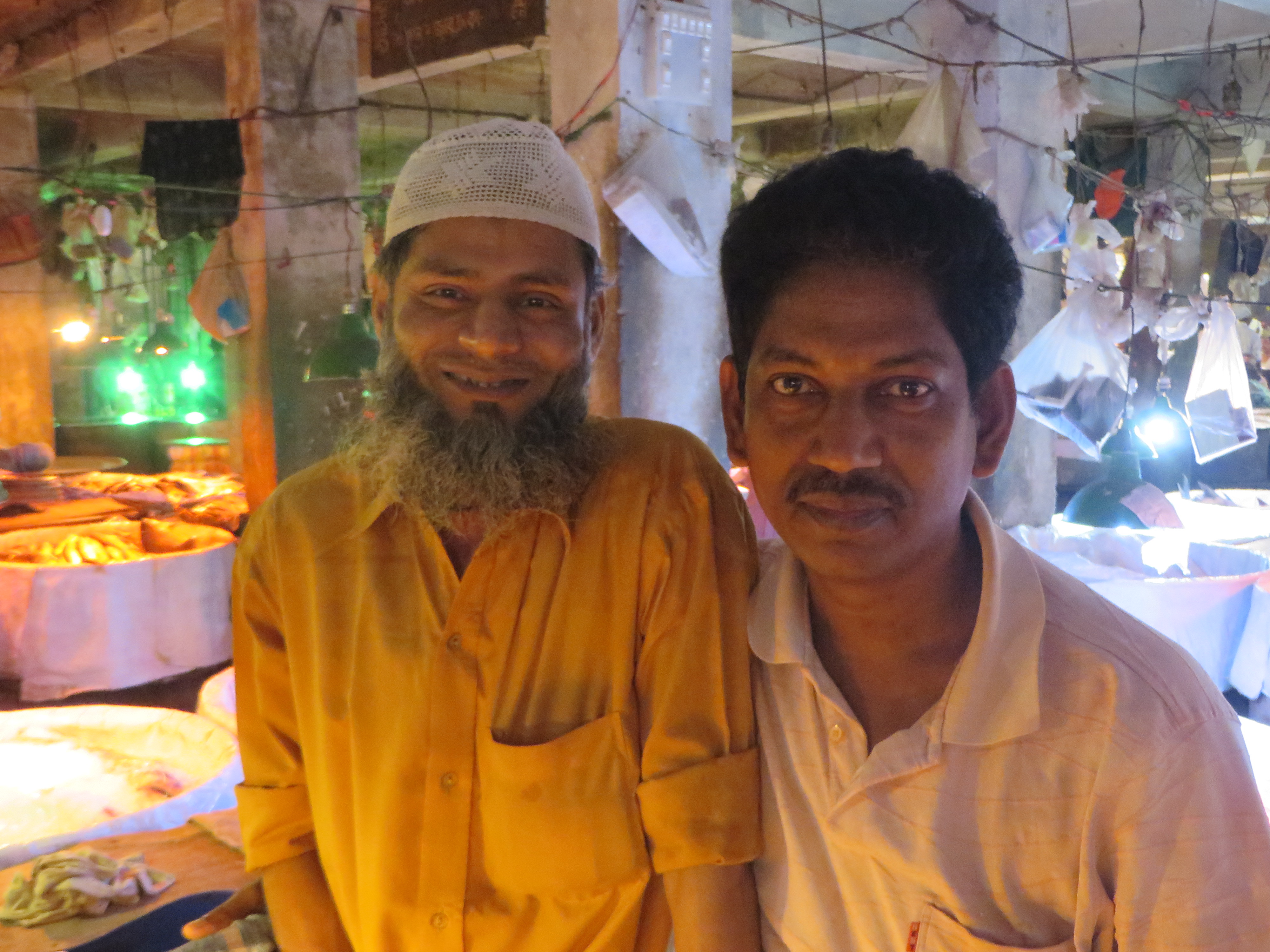

Great post to visit Bangladesh.
Thanks, unfortunately recent events will make it even more unlikely that anyone will visit